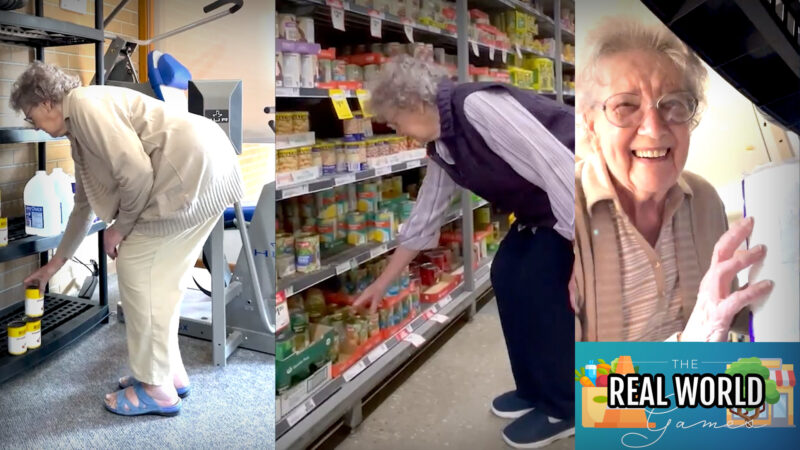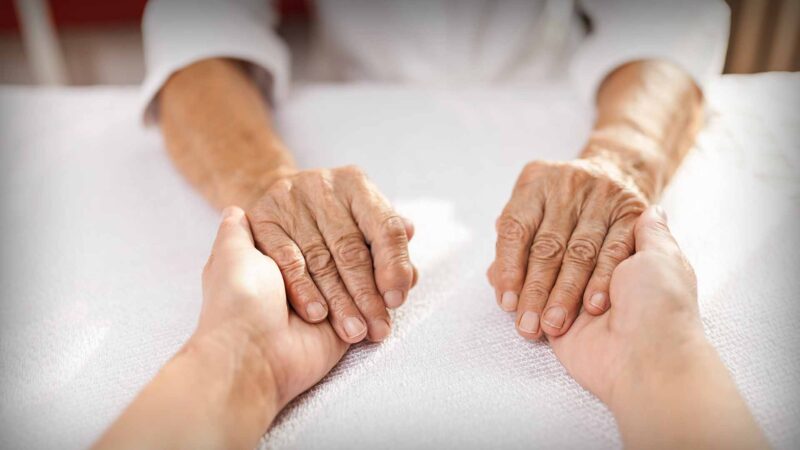Re Aged Care spoke with Dr Priyanka Vandersman, an End of Life Directions for Aged Care Research Fellow, at the Research Centre for Palliative Care, Death and Dying, Flinders University about ELDAC and its importance for the aged care workers and residents. Timed to coincide with Palliative Care Week 2023, the interview was captured at the ARIIA Facing the Future: Aged Care 2030 and Beyond Conference in Adelaide in May.
ELDAC stands for End of Life Directions for Aged Care. It is an Australian national project that aims to improve the quality of end-of-life care provided to older people in residential aged care facilities. The project was funded by the Australian Government Department of Health and began in 2015.
ELDAC focuses on supporting aged care providers, healthcare professionals, and families in delivering person-centred and high-quality care to older adults nearing the end of their lives. The project provides resources, tools, and training to improve the knowledge and skills of aged care staff and enhance the overall care experience.
ELDAC aims to address several key areas related to end-of-life care, including advance care planning, palliative care, and care coordination. It emphasises the importance of early conversations and planning for end-of-life care preferences, ensuring that individuals’ wishes and values are respected. The project also promotes collaboration between healthcare professionals, aged care staff, and families to ensure seamless and coordinated care.
By providing education, resources, and support, ELDAC seeks to empower aged care providers and healthcare professionals to deliver compassionate and high-quality care during this important stage of life.
The ELDAC project is a consortium led program through a partnership between 3 Universities and 4 peak bodies
- Queensland University of Technology
- The University of Technology Sydney (UTS)
- Flinders University
- Palliative Care Australia
- Aged & Community Care Providers Association (ACCPA)
- Australian Healthcare & Hospitals Association (AHHA)
- Catholic Health Australia
You Might also like
-
Applying creativity in wellness and reablement in residential aged care
Real World Games are a series of events that mimic typical obstacles older adults may face in the community. Each event incorporates a different environment, skill and challenge. Over 4 weeks, each competitor will receive the support and training of their allied health team to conquer challenges. These challenges have been designed for varying mobility and functional levels, as well as some challenges for the trainers, for all involved to compete.
The games will culminate in a live-streamed event where competitors from across Australia will compete against each residential aged care centre.
The aim is to make as many older adults as possible, community ambulant, whilst using creativity to give older Australians a sense of fun in the activity.
-
5 Key priorities in Aged Care, according to a Geriatrician
Geriatrician Professor Susan Kurrle is Curran Professor in Health Care of Older People at the Faculty of Medicine and Health, University of Sydney.
Professor Kurrle is a practicing geriatrician for the Northern Sydney Local Health District (NSLHD), specialising in the areas of dementia, frailty, elder abuse, successful ageing, and intergenerational care.
In this Re Aged Care segment, Professor Kurrle talks about the 5 key priorities in aged care reform, from the point of few of a geriatrician, especially those that are living with dementia.
-
Leaders in residential palliative care
In 2022, VMCH won the Future of Ageing Awards Palliative Care Category Award, for their specialist end-of-life care and respite home, O’Neill House in Prahran, Victoria. Timed to coincide with Palliative Care Week 2023, Re Aged Care spoke with the VMCH CEO Sonya Smart about O’Neill House, the training to staff and the level of palliative support given to residents.



